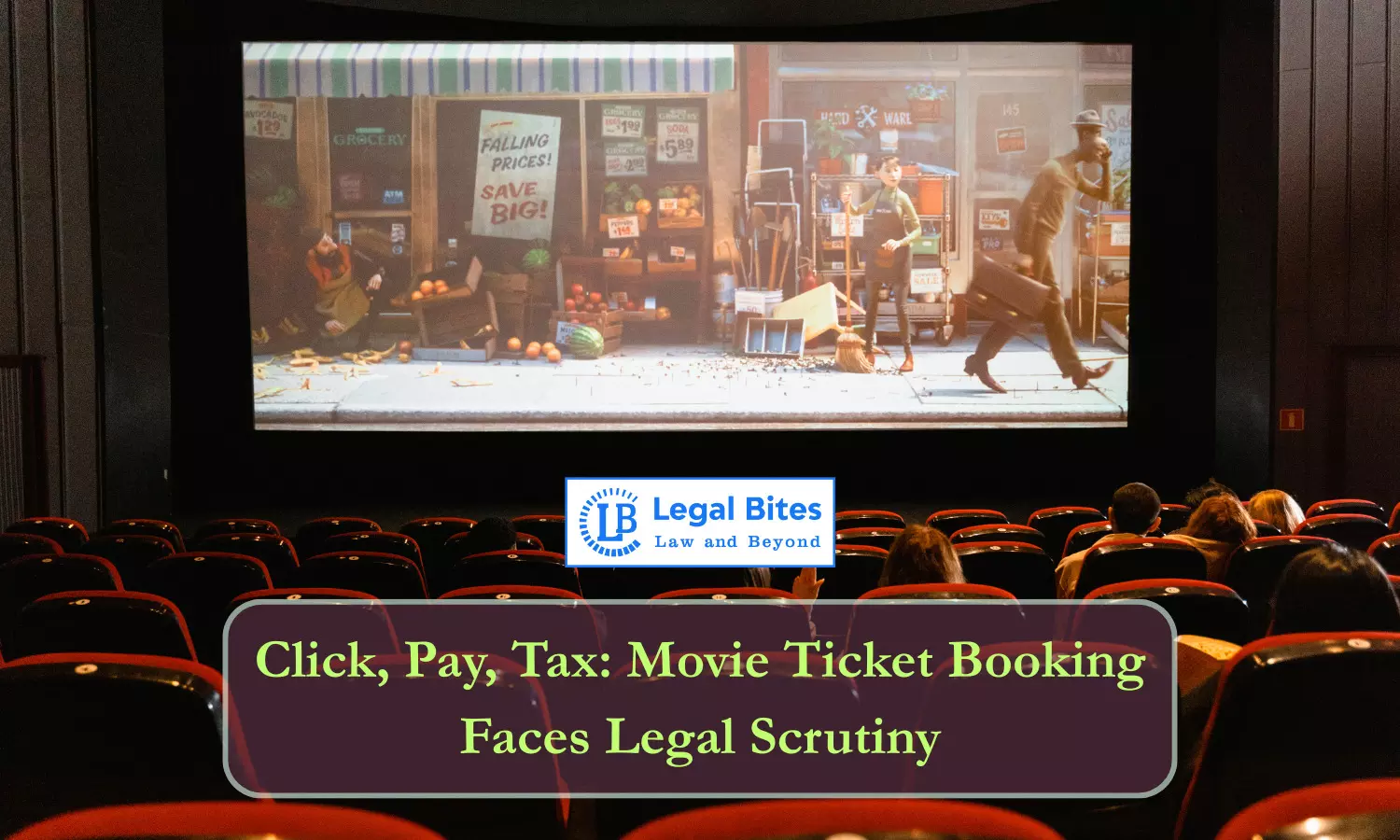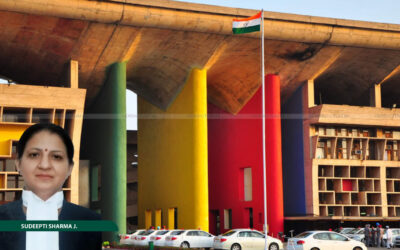Is the Online Sale of Movie Tickets Subject to Entertainment Duty? Bombay High Court’s Ruling Explained


The rise of digital platforms has transformed the entertainment landscape in India. From streaming services to online ticketing for cinema halls, the line between traditional and digital entertainment mediums has blurred. In this evolving ecosystem, a significant legal question arose: Should convenience fees charged during online movie ticket bookings be subject to entertainment duty under state laws?
Background of the Case
Two writ petitions were filed before the Bombay High Court:
- Writ Petition No. 1813 of 2016 was filed by FICCI-Multiplex Association of India, representing cinema exhibitors.
- Writ Petition No. 1689 of 2015 was filed by Bigtree Entertainment Pvt. Ltd., which operates the online ticketing platform BookMyShow.
The challenge was directed against the 7th Proviso to Section 2(b) of the Maharashtra Entertainments Duty Act, 1923, which was inserted by a 2014 amendment.
This proviso essentially stated:
“Any amount received towards service charges or convenience fee in excess of ₹10/- per ticket shall be considered as part of the payment for admission and hence liable to entertainment duty.”
Petitioners contended that online ticket booking is a distinct service and not part of the “entertainment” itself. They argued that levying duty on such convenience fees violated constitutional provisions and the limits of legislative competence.
Petitioners’ Arguments
- The convenience fee or internet handling fee is not part of the ticket price but a separate service for using the platform.
- The 7th Proviso to Section 2(b) creates a “deeming fiction” that extends the definition of “payment for admission” beyond its natural meaning.
- Online platforms like BookMyShow are independent intermediaries and not agents of cinema halls.
- The State Legislature, under Entry 62 of List II (State List) of the Constitution, can impose duty only on entertainment and not on services.
- The levy lacks a proper collection and enforcement mechanism.
State’s Response
The State of Maharashtra argued that:
- The convenience fee is intrinsically linked to admission to entertainment.
- The fee charged above ₹10 is a source of revenue and is within the State’s legislative competence under Entry 62.
- A mechanism exists under the Act to regulate and collect such duty.
Key Observations by the Court
The Bench comprising Justices M.S. Sonak and Jitendra Jain delivered a reasoned verdict. Key observations include:
1. Convenience Fee Is Not Independent of Admission
“The so-called ‘convenience fee’ is an integral part of the transaction resulting in admission to an entertainment event.”
The Court held that although the convenience fee appears to be for an online service, it is inextricably linked to the process of obtaining admission to entertainment. Hence, it can be validly included in “payment for admission.”
2. Proviso is Not Ultra Vires
The Court rejected the argument that the proviso altered the charging mechanism improperly. It noted that changes in the method or measure of tax do not require re-legislation of the charging section.
“Amendments to the definition clause can supplement the measure of tax, provided the subject matter remains within the State’s legislative competence.”
3. Doctrine of Colourable Legislation Not Attracted
The Court disagreed with the petitioners’ claim that the amendment was a backdoor method to regulate excessive charges. The object was tax collection—not price control—and this falls squarely within legislative competence.
4. No Breach of Constitutional Mandates
The Court held that the petitioners failed to demonstrate any manifest arbitrariness or lack of legislative competence that would warrant striking down the proviso.
5. Petitioners Withheld Key Contracts
The Court disapproved of the failure of online ticketing platforms (W.P. No. 1689/2015) to submit agreements with theatre owners, despite their centrality to the petition. It emphasised that no adjudication can be done under Article 226 on inter-party contractual disputes.
Final Decision: Online Sale of Tickets Attracts Entertainment Duty
The Bombay High Court upheld the validity of the 2014 amendment and clarified that:
- Convenience fees above ₹10 per ticket for online booking are part of the “payment for admission” under Section 2(b) of the MED Act.
- Such fees are liable to entertainment duty.
- State of Maharashtra acted within its legislative competence, and the amendment is neither arbitrary nor ultra vires.
- The writ petitions were dismissed, with liberty to petitioners to raise contractual disputes in appropriate forums.
Key Highlights from the Judgment
Justices M.S. Sonak and Jitendra Jain stated:
“In our view, the petitioners are not justified in submitting that what is sought to be taxed is a separate activity of online ticket booking. This is not borne out from the plain language of the section but on the contrary the Statement of Objects and Reasons states that what is sought to be achieved is to limit the amount which is to be treated as payment for admission for the purposes of the charging section. Therefore, in our view, the submission on colourable device to challenge the impugned proviso cannot be accepted.
We have already observed that online ticket booking charges would squarely fall within Section 2(b)(iv) of the MED Act and Section 2(b) provides a measure of tax for the purposes of applying the rate of duty specified in Section 3. The online ticket booking charges, in our view, would squarely fall within the provisions of Section 2(b)(iv) and therefore, there is no justification in submitting that the State Legislature does not have the competence to insert the impugned proviso.”
Conclusion
Bombay High Court’s 2025 ruling is a landmark decision that balances technological innovation with fiscal accountability. By upholding the levy of entertainment duty on online convenience fees, the Court has clarified the contours of taxation in an increasingly digital economy. While the convenience of online booking remains intact, stakeholders must now reckon with a clearly defined tax liability—ensuring that digital services are not beyond the reach of traditional tax statutes.
Important Link
Law Library: Notes and Study Material for LLB, LLM, Judiciary, and Entrance Exams

